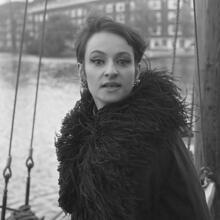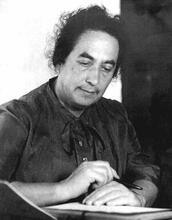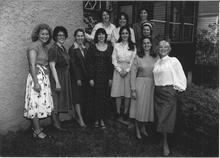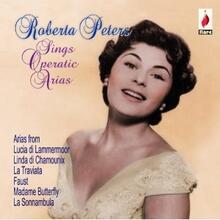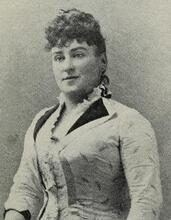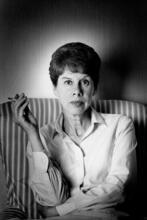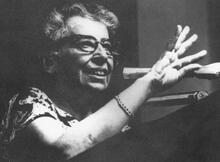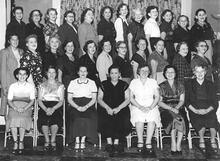Ruth Kisch-Arendt
Ruth Kisch-Arendt became one of Germany’s foremost performers of lieder (nineteenth–century allegorical poems set to music) through the intense period of anti-Semitism leading up to the Holocaust. After World War II, she used her talents to highlight great Jewish composers. An Orthodox Jew, Kisch-Arendt studied music in Germany, Switzerland, and Italy, performing the works of great German composers to wide praise. After the rise of Nazism, she joined the Jewish Kulturbund and turned her attention to Jewish audiences. After immigrating to New York and performing at various music festivals, she broke from her usual repertoire, showcasing Jewish composers such as Frederick Jacobi and Irwin Heilner.
Article
Ruth Kisch-Arendt, an Orthodox Jew who celebrated the musical and cultural traditions of German lieder, performed the songs of Schubert, Mendelssohn, Liszt, and Wagner before small-town German Jewish audiences during some of the most violent outbreaks of antisemitism in the 1930s. These performances stand as a poignant and ironic reminder of the inhumanity of the Holocaust.
Born in Goldberg, Silesia, in 1906, Ruth Kisch-Arendt studied music in Germany, Switzerland, and Italy. She specialized in lieder, nineteenth-century German songs characterized by secular themes, derived in part from allegorical poetry.
Kisch-Arendt achieved prominence as one of the foremost lieder singers in Europe. In the late 1920s, she sang at the Niederrheinisch Festival in Cologne, the Beethoven Festival in Bonn, and the Hamburg Centenary Festival. After the rise of the Nazi Party in Germany, Kisch-Arendt joined the Jewish Kulturbund in 1933, presenting her interpretations of lieder to Jewish audiences.
In 1938, Kisch-Arendt and her husband, physician and physiologist Bruno Kisch, immigrated to the United States, entering the country on nonquota visas. Settling in New York City, Kisch-Arendt continued her career as a singer, performing in many American music festivals in the 1940s, including the New York Festival of Jewish Art in 1941. In 1945, she departed from her usual repertoire of lieder, presenting a program of works by Jewish composers that spanned four centuries. In 1948, she sang the debut performances of Frederick Jacobi’s Vocalise and Irvin Heilner’s The Traveler.
Regarded by American critics as a sympathetic interpreter of lieder and other songs, Kisch-Arendt was described by one contemporary observer as “lively and touching in a field where there is so much arid professionalism.”
Ruth Kisch-Arendt died in 1975.
Kisch, Bruno Z. Wanderungen und Wanderlunger (1966).
New Grove Dictionary of Music and Musicians. Edited by Stanley Sadie. Vol. 10, s.v. “Lieder” (1980).
UJE, s.v. “Kisch, Bruno”,
Whitton, Kenneth S. Lieder: An Introduction to German Song (1984).

